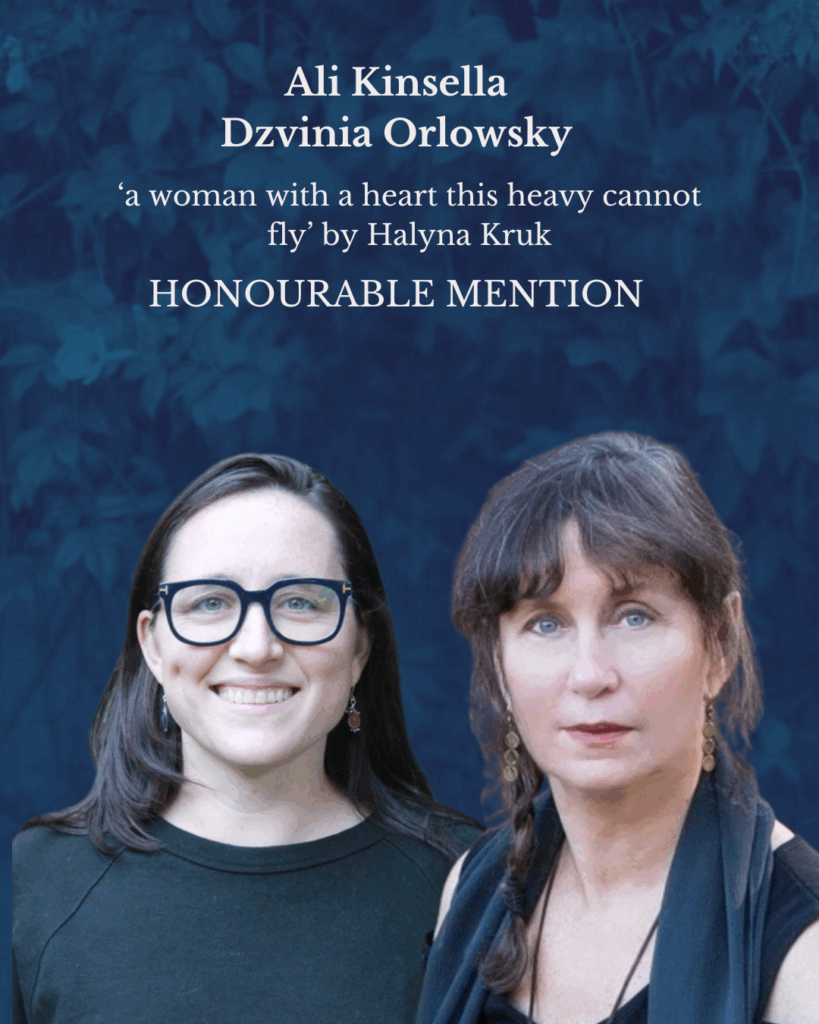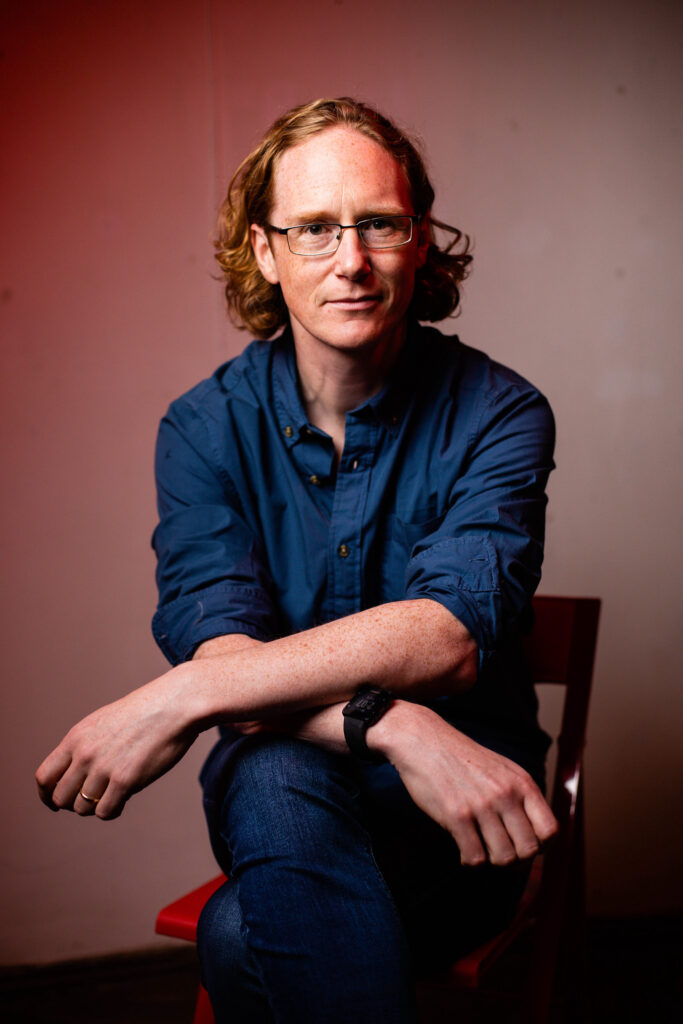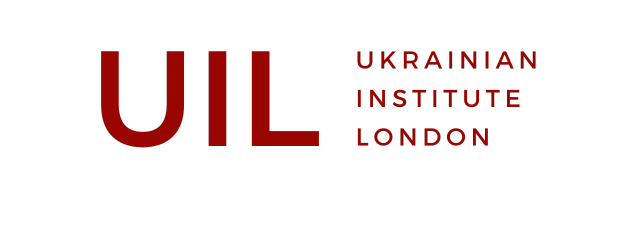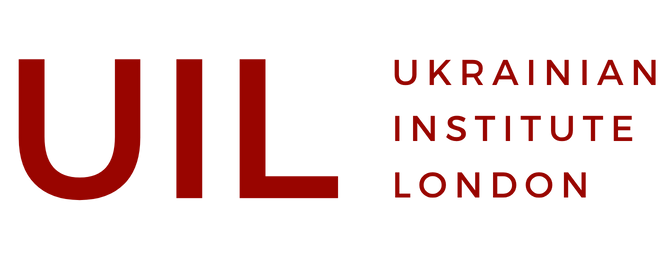Ukrainian Literature in Translation Prize Winners and Honourable Mentions

We are thrilled to announce the winners of the UIL Ukrainian Literature in Translation Prize. The winning translations, along with those receiving honourable mentions, speak powerfully from this moment in Ukraine’s history, as the country endures the fourth year of Russia’s full-scale war. Steeped in the experience of imperial violence, these are voices that do not bend or break under the threat of suppression; instead, they sing, fight, and love. These poems—and one monologue—are radiant with the will to survive and thrive.
Winners
Yuliya Ilchuk is an Associate Professor and the Director of Slavic Languages and Literatures Department at Stanford University. Her major research interests fall under the broad heading of cultural exchange, interaction, and borrowing between Russia and Ukraine. Her first triple-award-winning book, Nikolai Gogol’s Hybrid Performance (University of Toronto Press, 2021), revises Gogol’s identity and texts as ambivalent and hybrid. Ilchuk’s most recent book project, The Vanished: Memory, Temporality, Identity in Post-Euromaidan Ukraine, revisits the major issues of memory studies and shifts the discussion from collective remembrance to the cultural dimensions of forgetting. Ilchuk has also published several translations of Ukrainian poetry and edited and translated works for the anthology Ukrainian Literary Modernism: A Critical Reader (forthcoming with Academic Studies Press, 2025).
Amelia M. Glaser is Professor of Literature at the University of California, San Diego, where she is also the Director of the Institute for Arts and Humanities and holds an endowed chair in Judaic Studies. She is the author of Jews and Ukrainians in Russia’s Literary Borderlands (Northwestern UP, 2012) and Songs in Dark Times: Yiddish Poetry of Struggle from Scottsboro to Palestine (Harvard UP, 2020). She is the editor of Stories of Khmelnytsky: Competing Literary Legacies of the 1648 Ukrainian Cossack Uprising (Stanford UP, 2015) and, with Steven Lee, Comintern Aesthetics (U. Toronto Press, 2020). Her translations include Proletpen: America’s Rebel Yiddish Poets (U. Wisconsin Press, 2005); and, with Yuliya Ilchuk, Halyna Kruk’s A Crash Course in Molotov Cocktails (Arrowsmith Press, 2023) and Iya Kiva’s Silenced Dressed in Cyrillic Letters (forthcoming with Harvard Ukrainian Research Institute, 2026).
In ‘a frozen sea’ Iya Kiva gives voice to the dead in a lyric meditation on the inability to speak or to forget.
Aliona (aka Eriel) Vitiaz is an experienced translator, a lifelong fan of sci-fi and fantasy, and an amateur birdwatcher. Born in a market town called Khmelnytskyi, Ukraine, she once translated The Hobbit for fun in school and has never stopped since. Having tried her hand at virtually every type of text there is, she finally made her dream come true when she started translating poetry and fiction. This work has become a great source of comfort, helping her withstand the pressure of living in a country viciously attacked by Russia day by day. Her biggest ambitions are to promote Ukrainian fantasy and poetry abroad and, one day, to become a proper cat lady with a nice garden to putter about in a peaceful and victorious Ukraine.
Maryna Ponomarenko’s ‘You Hang onto Nothing’ is a story about the hardness and spunk carried by generations of Ukrainians whose lives are as precarious as the dance of a tightrope walker.
Nataliya Yaroshenko is a ceramic artist and art educator originally from Kharkiv, Ukraine, now residing in Los Angeles. While specialising in ceramics and process art in her professional life, Nataliya also holds a special place in her heart for the power and beauty of words. She is honoured to have collaborated in translating the poems of Maksim Kryvtsov, a talented poet who fought for Ukraine’s freedom. His was one of the remarkable voices tragically lost in this war. Nataliya continues to support her homeland’s efforts for independence and democracy through direct support and education.
John Farndon is a best-selling author of over 1000 non-fiction books, a playwright, songwriter, poet, and an award-winning translator of literary works. Over the last three years he has translated hundreds of Ukrainian poems and over 30 new Ukrainian plays in conjunction with the Worldwide Ukrainian Playreading Project, including Neda Nejdana’s Pussycat in Memory of Darkness, and Inna Goncharova’s The Trumpeter, staged at London’s Finborough and on tour. Joint winner of the 2019 EBRD Literature Prize for Hamid Ismailov’s Devil’s Dance, 2020 finalist for the PEN Translation Prize for co-translating Rollan Seisenbaev’s The Dead Wander in the Desert.
Maksym Kryvtsov, poet and machine-gunner, spent most of his adult life (beginning in 2014) defending his homeland against Russian invasion. His poems show there is space for whimsical beauty even at the zero line.
Honourable mentions

Ali Kinsella holds an MA in Slavic studies from Columbia University and has been translating from Ukrainian for thirteen years.
Dzvinia Orlowsky is a Pushcart Prize poet, translator, and a founding editor of Four Way Books. She has authored seven poetry collections with Carnegie Mellon University Press.

Helena Kernan is a literary translator of Ukrainian and holds master’s degrees from the University of Cambridge and the University of California, Berkeley.

Matvii Smirnov is a Ukrainian poet based in the United Kingdom. Born in Lviv, Ukraine, in 1974, he has lived in London since 2004. His Ukrainian poetry and English translations have been featured in various Ukrainian and international literary magazines and anthologies.
Jury

Our gratitude goes to the 2024 jury of the Ukrainian Literature in Translation Prize: Sasha Dugdale, Halyna Hryn, Nina Murray, and Uilleam Blacker.
‘This year’s UIL translation prize highlighted the richness and visceral power of recent Ukrainian war poetry, which, for me, is one of the most remarkable phenomena in world literature right now. It also showed just how many talented translators there are out there – people who are able to handle not only the linguistic challenges of translating these poems, but who also have the emotional sensitivity needed to negotiate such fraught terrain.’ Uilleam Blacker
LUR Translates
The 2024 UIL Literature in Translation Prize was coordinated by Maryna Dubyna, UIL Kultura Fellow, and Larissa Babij, Managing Editor of the London Ukrainian Review.
‘This summer Ukrainians have endured Russian airstrikes with unprecedented numbers of drones and missiles and also participated in countrywide civic demonstrations to defend the democratic principles enshrined in the country’s Constitution. The literature of Ukraine’s independence, and especially recent wartime poetry, is infused with the spirit and grounded in the actions of Ukraine’s people, from those serving in the defense forces to young protestors. This integrity of word and deed is what people around the world can admire and learn from reading Ukrainian voices in translation.’ Larissa Babij
Past editions of the prize
The first edition of Ukrainian Literature in Translation Prize was held in 2021 and was dedicated to the writing of Lesia Ukrainka. The Prize was awarded to Nina Murray for her outstanding translation of an excerpt from Cassandra, which went on to be produced for the stage. Nina Murray joined the Prize’s Jury the following year. Daisy Gibbons was the runner-up with a finely translated excerpt from Ukrainka’s correspondence with Olha Kobylianska.
In 2022–23, Daisy Gibbons won the Ukrainian Literature in Translation Prize with translations and extracts from Artem Chekh’s wartime diaries and Olha Matsiupa’s play Pilates Time. Daisy has gone on to translate several acclaimed novels, including Sofia Andrukhovych’s Amadoca (forthcoming, Simon & Schuster).




